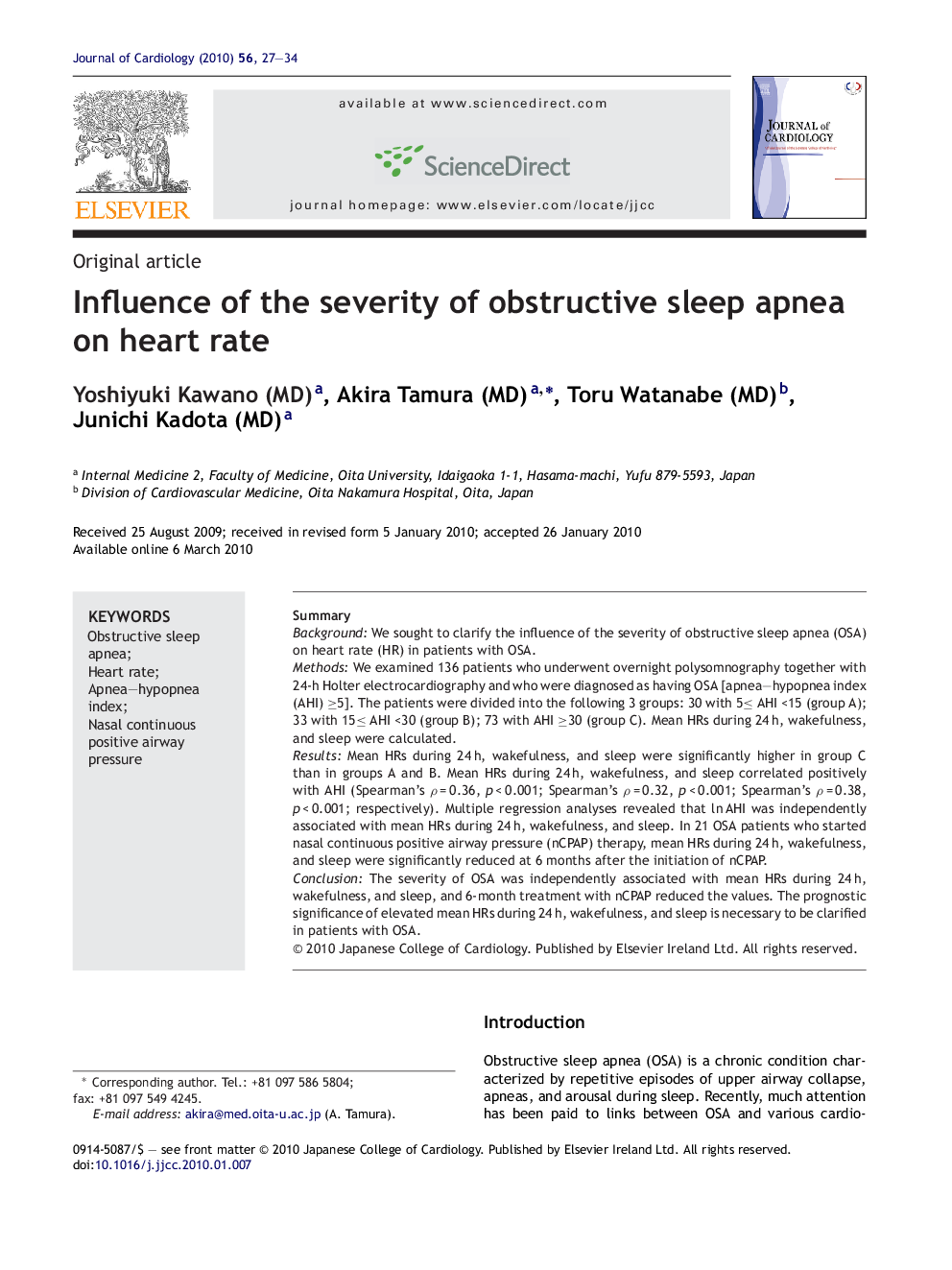| Article ID | Journal | Published Year | Pages | File Type |
|---|---|---|---|---|
| 2963612 | Journal of Cardiology | 2010 | 8 Pages |
SummaryBackgroundWe sought to clarify the influence of the severity of obstructive sleep apnea (OSA) on heart rate (HR) in patients with OSA.MethodsWe examined 136 patients who underwent overnight polysomnography together with 24-h Holter electrocardiography and who were diagnosed as having OSA [apnea–hypopnea index (AHI) ≥5]. The patients were divided into the following 3 groups: 30 with 5≤ AHI <15 (group A); 33 with 15≤ AHI <30 (group B); 73 with AHI ≥30 (group C). Mean HRs during 24 h, wakefulness, and sleep were calculated.ResultsMean HRs during 24 h, wakefulness, and sleep were significantly higher in group C than in groups A and B. Mean HRs during 24 h, wakefulness, and sleep correlated positively with AHI (Spearman's ρ = 0.36, p < 0.001; Spearman's ρ = 0.32, p < 0.001; Spearman's ρ = 0.38, p < 0.001; respectively). Multiple regression analyses revealed that ln AHI was independently associated with mean HRs during 24 h, wakefulness, and sleep. In 21 OSA patients who started nasal continuous positive airway pressure (nCPAP) therapy, mean HRs during 24 h, wakefulness, and sleep were significantly reduced at 6 months after the initiation of nCPAP.ConclusionThe severity of OSA was independently associated with mean HRs during 24 h, wakefulness, and sleep, and 6-month treatment with nCPAP reduced the values. The prognostic significance of elevated mean HRs during 24 h, wakefulness, and sleep is necessary to be clarified in patients with OSA.
